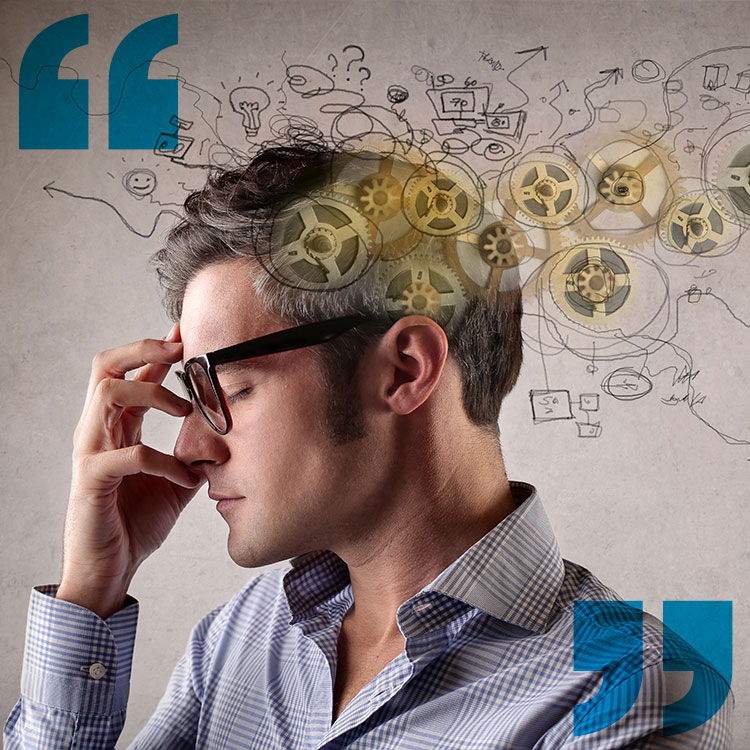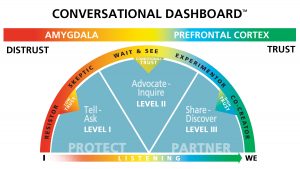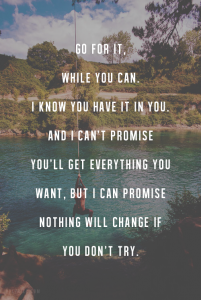The Millennial Possibility Mindset and Riding the Next Wave of Human Evolution Part 2

 Judith Glaser is an organizational anthropologist and the leading authority on WE-centric Leadership as well as the Neuroscience of WE and Conversational Intelligence. She was awarded Woman of the Year in New York City in 2004 and is a best-selling business author of seven different books, including Conversational Intelligence, her newest best seller. A pioneering and innovative change agent, she is an executive coach, consultant, and specialist on Conversational Intelligence ®. Judith believes that by applying neuroscience and anthropology to business challenges, business teams can elevate levels of engagement, innovation, and collaboration in order to positively impact the bottom line. She is both the founder and CEO of Benchmark Communications, Inc., and the chairman of the Creating WE Institute, working for over twenty-five years with CEOs and their teams to establish WE-centric cultures to strategically handle ever-evolving business challenges. Below, she shares her insight and experience from her pursuit of neuroscience and organizational anthropology and on the power of the Millennial Possibility Mindset on both our personal and professional lives. Read more about the Millennial Possibility Mindset in detail in the article she co-authored with Dr. Debra Pearce-McCall: “Riding the Next Wave of Human Evolution” and be sure to check out her website! Also check out this interview with the the article’s co-author Dr. Debra Pearce-McCall for more on the Millennial Possibility Mindset!
Judith Glaser is an organizational anthropologist and the leading authority on WE-centric Leadership as well as the Neuroscience of WE and Conversational Intelligence. She was awarded Woman of the Year in New York City in 2004 and is a best-selling business author of seven different books, including Conversational Intelligence, her newest best seller. A pioneering and innovative change agent, she is an executive coach, consultant, and specialist on Conversational Intelligence ®. Judith believes that by applying neuroscience and anthropology to business challenges, business teams can elevate levels of engagement, innovation, and collaboration in order to positively impact the bottom line. She is both the founder and CEO of Benchmark Communications, Inc., and the chairman of the Creating WE Institute, working for over twenty-five years with CEOs and their teams to establish WE-centric cultures to strategically handle ever-evolving business challenges. Below, she shares her insight and experience from her pursuit of neuroscience and organizational anthropology and on the power of the Millennial Possibility Mindset on both our personal and professional lives. Read more about the Millennial Possibility Mindset in detail in the article she co-authored with Dr. Debra Pearce-McCall: “Riding the Next Wave of Human Evolution” and be sure to check out her website! Also check out this interview with the the article’s co-author Dr. Debra Pearce-McCall for more on the Millennial Possibility Mindset!
Ms. Glaser, thank you for taking time out of your busy schedule to answer some questions for us! What is the field of organizational anthropology and why did you decide to pursue it?
I grew up in a family that travelled around the world, and when I was 11 my parents took us to a place where there were some archeological digs. I was fascinated when they talked about rituals for burial- and I wanted to know more about rituals. We found a person’s thumb, which we brought home. By mistake I opened it up and I saw real blood – this made me start to think about how bodies get preserved over centuries, and I became more and more curious. That summer I was in an international camp, and two years later I went to Peru with my family – we did more archeological digs and brought home more artifacts. I was fascinated at the stories of what I learned about the civilization’s, and how they represented what was important to them. We went and saw a Neolithic cave with writing on it, and I was sold on studying all of these different cultures and what they had in common, how humans are evolving and what we are evolving towards.

When I got into college I was the first student who declared a major in interdisciplinary studies at Temple University (they now have a program in it). This gave me a chance to study everything I could about organizations, culture, anthropology, and archeology. I was fascinated with science so I also did physics, biochemistry, linguistics, and art. I put together my first course in organizational anthropology and then I just kept taking more! I did another degree in corporate and political communications, which helped me study contemporary cultures. I got a chance to study at Harvard and Penn, besides where I got my graduate degrees, so I was really learning from the best. I felt it was a course of study that more people should be doing.
I noticed that you’re from Cornell- the professor who I studied under for my graduate degree also had a double PhD from Cornell – small world!
You consult with businesses to help them engage, collaborate, and innovate more. How do you successfully bring and apply neuroscience and anthropology to business challenges as a Conversation Intelligence specialist? What are some of the ideas you challenge your clients with?
I want to share that we help create new operating systems inside of companies. A lot of people consult (meaning advise, or telling what to do)- we engage companies and cultures in co-creating the future with each other- you might say I’m a different type of consultant: A C-IQ consultant. We create an opportunity for a culture to become immersed in who they are and who they could be relative to their creative marketing opportunities Where do they take their talents and expertise in the world? How do they find their right niche and own it? What I studied in school was a log about marketing and sales and positioning- which is different from your typical educational program.
 I’ve created a methodology for stepping inside of a culture and getting to understand the influences, the opportunities, the aspirations- the unique fingerprint of the company and the divisions and people inside of it: and this methodology is called Conversational Intelligence. Conversational Intelligence is the way that I bring and apply neuroscience and anthropology to business challenges with my clients, and it’s also the framework that I have been teaching to Executive Coaches globally through a 7-month long immersion program, which is just completing it’s second year of graduates. Hundreds of these coaches go on to become Certified, and already represent 75 different countries around the world. My aspiration is to bring this framework around the world globally: to government, education, corporations, teams, the aid sector- and we are already on our way.
I’ve created a methodology for stepping inside of a culture and getting to understand the influences, the opportunities, the aspirations- the unique fingerprint of the company and the divisions and people inside of it: and this methodology is called Conversational Intelligence. Conversational Intelligence is the way that I bring and apply neuroscience and anthropology to business challenges with my clients, and it’s also the framework that I have been teaching to Executive Coaches globally through a 7-month long immersion program, which is just completing it’s second year of graduates. Hundreds of these coaches go on to become Certified, and already represent 75 different countries around the world. My aspiration is to bring this framework around the world globally: to government, education, corporations, teams, the aid sector- and we are already on our way.
C-IQ can challenge clients in many different ways because it requires a level of candor and a supportive solution oriented framework, which is not always the norm, depending on the context of a team or group. It’s challenging the idea of transparency, focusing on relationships before the business, being willing to step into the shoes of other people without judgment, creating a picture of shared success, and telling the truth. This is the basis for building trust in any part of the world, in every country, in every business I’ve been in, any partnership I’ve worked with.
From your experience with working with business CEOs, what role would you say adaptive minds have in the workplace?
Adapt: to modify, making something suitable for a new use or a new purpose.
My professor had two words that she used with me all the time: one was adaptive, and the other is adapting. These are opposites – one is where you adapt to your environment, and the other is where your environment adapts to you. Adaptive means characterized or given to adaption: adaptive evolution, for example. For example, hospitals needed to adapt to modern medical practices; a large organization can be slow to adapt to change. People in companies need to change their minds and need to respond to the changes in the environment of the world around them. This is an example of the human beings need to make the change.

For example, when technology comes in, we as humans need to adapt to these new tools. If we don’t adapt and if don’t have adaptive minds in the workplace, we as humans get stuck in patterns that lock us into how the world is now. This is not productive for the workplace because in fact the rate of change is getting faster not slower, and it never stops. We’ve also seen in our research that non-adaptive people show higher incidences of being addicted to being right – they don’t even see the impact of change. They stop noticing how to adapt to what is changing, and they are less open to influence. For companies it creates stagnation, and for individuals it can actually create ill health because so much time is directed towards defending a reality which no longer exists.
In the article you co-authored, you and Dr. Debra Pearce-McCall write about putting to test your hypothesis that Millennials have been mislabeled. What are some of these mislabels that Millennials have been given?
Entitled, selfish, self-centered, lazy, impatient with organizational life (will quit quickly), unwilling to pay their dues, the Generation ME.
Time Magazine wrote a cover story called: Millennials the ME ME ME Generation – it’s all of these characterizations that I found to be ridiculous. Later, someone wrote an article calling Millennials Generation WE – which I think is true – that they are a generation with a global mindset. The article describes how millennial youth are taking over America and changing our world forever. I think they have the capacity to handle higher levels of complexity, they seek more universal solutions for the world, they don’t have fear of putting new ideas out and discussing them- even if they are uncommon.
Your and Dr. Pearce-McCall explain just how powerful and impactful the Millennial Possibility Mindset can be regarding our work experiences. How might we apply the mindset to our personal lives as well?
I would love to share this exercise which someone taught me, and which I do with my coaches: it’s called 100 Aspirations for Life. It’s where you list all the things you want to accomplish in your life. Because millennials have access to so much more of the world, their aspirations might be multi-dimensional and worth looking at, and exploring. This exercise is useful for anyone, not only young people or students. The effect of gaining clarity on one’s life aspirations can be profound, because by giving yourself space to list so many aspirations, you might be able to start to see patterns and connections that were not previously available to you.

When you do this exercise, start free flowing your aspirations, and then step back and see what categories emerge. My friend, for example, wanted to give back to the world in some way: he wanted to have enough money to give back to his university; he wanted to meet famous people; he wanted to travel around the world – and he ended up doing everything on his list! Once he got his list of 100, he would look at each one and say “What are the steps I need to take to get to this aspiration?” He had a road map for everything.
Can non-Millennials draw from what Millennials offer with the Millennial Possibility Mindset? And what can Millennials do on their end to bridge conflicting mindsets and value systems both in the workplace and society?
To question one: absolutely. Don’t create false limitations before you imagine what you want or aspire to have or create in the world. The biggest gift that millennials are bringing to the workplace is an unlimited perspective about what is achievable and possible. We are living in a transformational moment in time, and technology is only going to continue to adapt and increase our potential as humans- this is something that the newer generations experience as second nature- and this is a powerful perspective that non-millennials can draw from the millennial possibility mindset.
 On their end, I would love for millennials to learn the conversational essentials for how to create safe and inspiring conversational spaces- where they can engage with anyone from any generational thinking, and as a result be able to bring their wisdom into the world through conversations. To learn to co-create with other humans on the planet and not let ego and judgment get in the way. I think that on their end, developing more patience and spending more time priming for trusting relationships within multi-generational groups would also be very supportive.
On their end, I would love for millennials to learn the conversational essentials for how to create safe and inspiring conversational spaces- where they can engage with anyone from any generational thinking, and as a result be able to bring their wisdom into the world through conversations. To learn to co-create with other humans on the planet and not let ego and judgment get in the way. I think that on their end, developing more patience and spending more time priming for trusting relationships within multi-generational groups would also be very supportive.
Here’s an interesting article I’d like to share.
Why do you think our sense of self over the generations has shifted from needing to stand out to wanting to be a part of something larger than ourselves?
If you study history, you will see that every fifty years or so there are swings from I-centric to WE-centric; and then WE-centric to I-centric. These environmental shifts shape millennial behavior and evolution.
If you could give one piece of advice to Millennials and future generations, what would it be?
Take with lead: we are on an evolutionary swing like no other in the history of the world, and we should try to enjoy it.
Thank you so much Judith Glaser for your time and insight!
If anyone would like to contact Judith Glaser, she can be reached by her Twitter page, her Facebook, and her contact page!





Responses